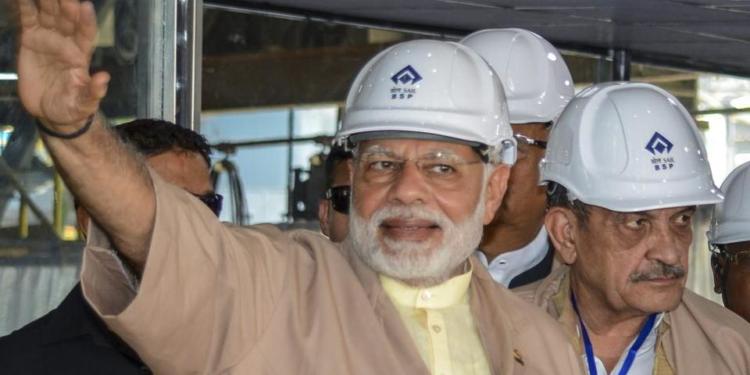The new Narendra Modi government is all set to roll out much-needed reforms in different sectors. From finance to urban development, all the sectors are poised to benefit from various major and minor reforms in governance methodology. Recent media reports also point towards important reforms and review in the labour laws of the nation. The government is likely to extend the applicability of the Minimum Wages Act to all forms of employment and workers in the organized sector as well as the unorganised sector. This move by the government is likely to impact around 90% of the workforce which works in the unorganised sector. The legislation is currently limited to employees in scheduled employment.
The proposal to introduce changes in labour laws through the Code on Wages Bill, 2019, in Parliament includes other important provisions which provide critical federal frameworks to decide on minimum wages while considering all the relevant factors like geography, skill base etc. Earlier NITI Aayog Vice Chairman, Rajeev Kumar had also indicated towards the government’s push to introduce labour reforms.
Talking about labour reforms, he had said, “You will see action very soon. But you have to see action not in terms of hire and fire. You have to have labour reforms where labour gets his due and rightful participation but yet investors get the flexibility to be able to change its composition of labour force. We will take action in the coming Parliament session.”
Santosh Kumar Gangwar, Labour Minister in the Narendra Modi-led National Democratic Alliance (NDA) government also seemed to have absolute clarity on the priorities of his ministry. “We will try to complete the labour reform agenda,” said Santosh Gangwar immediately after assuming office on May 3. Santosh Gangwar is not new to the ministry, in the last term he held responsibility as minister of Labour and Employment (independent charge) and has been steering the ‘labour reform agenda’ since 2017. The fact that Narendra Modi wanted Santosh Gangwar to continue in the same ministry only proves the importance the government attaches to this ‘reform agenda’.
The last term of the Narendra Modi government also saw various reforms in the labour policy in line with increased welfare of the workforce. Various pension schemes introduced for the workforce had surely added to those efforts. The Code of Wages Bill, 2019, proposed by the Union Ministry of Labour and Employment further rationalizes various sections of central labour laws pertaining to service conditions like the Minimum Wages Act of 1948, the Payment of Bonus Act of 1965 and the Equal Remuneration Act of 1976. Earlier the code of wages bill 2017 was introduced in the parliament which was later referred to the Parliamentary Standing Committee on Labour however the proposal lapsed as the Lok Sabha was dissolved. The Code of Wages Bill, 2019 incorporates several improvements over the earlier proposed legislation which makes this is a significant step in terms of long-pending labour reforms and would bring respite to the workers of unorganised sector.

























